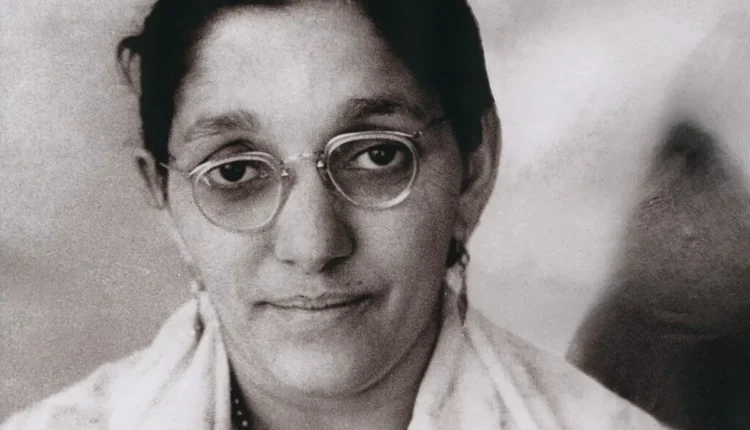Amina Pahad, a name that resonates deeply within the annals of South Africa’s rich and painful history, embodies the spirit of resilience, defiance, and maternal strength that helped shape the anti-apartheid movement. Born in July 1918, she was not only an instrumental figure in passive resistance against the brutalities of apartheid, but also a beacon of hospitality and community amidst the turbulence.
Amina Pahad was much more than an activist; she was a matriarch, a nurturer, and a testament to the power of women in the fight for justice. Her legacy, spanning generations, continues to inspire the pursuit of equality, democracy, and freedom.
Early Life of Amina Pahad: The Seeds of Activism
Amina Pahad’s journey began in Klerksdorp, a small town in the former Transvaal. Her early exposure to the teachings of Mahatma Gandhi’s satyagraha – the philosophy of nonviolent resistance – ignited a passion for justice within her. As a teenager, Amina Pahad gravitated toward activism, feeling the injustices of racial discrimination in her own community and understanding the power of collective resistance.
Her life took a defining turn when she married Goolam Hoosain Pahad, a fellow activist with the Transvaal Indian Congress (TIC). Together, they would forge a formidable partnership, rooted in a shared vision for a more just South Africa. In 1945, the Pahad family, now with five young sons – Ismail, Essop, Aziz, Nassim, and Zunaid – relocated to Johannesburg, a move that would place them at the epicenter of political action.
Orient House: A Hub of Resistance and Hospitality
Orient House in Ferreirastown, Johannesburg, was much more than a modest two-bedroom flat. It was a sanctuary for resistance fighters, a place where political discussions flourished over the meals lovingly prepared by Amina Pahad.
The flat’s proximity to iconic political landmarks such as Chancellor House, home to Nelson Mandela and Oliver Tambo’s law offices, and the headquarters of anti-apartheid organizations like the African National Congress (ANC) and TIC, made it a natural meeting place for activists.
Amina Pahad, despite initially speaking little English, was renowned for her warmth and hospitality. She made her home a refuge for the weary souls engaged in the dangerous work of dismantling apartheid. Even the Security Branch officers, who frequently raided her home, were met with her signature hospitality as she insisted on offering them refreshments.
Her home became a “home away from home” for prominent leaders of the movement. Walter Sisulu, one of the stalwarts of the ANC, described her residence as a refuge. Anti-apartheid activist Ahmed Kathrada lovingly referred to her as his “second mother,” a testament to her nurturing presence amidst the turmoil of resistance.
The Passive Resistance Campaign: A Bold Stand
The cornerstone of Amina Pahad’s political legacy lies in her active participation in passive resistance. In the mid-1940s, as apartheid policies began tightening their stranglehold on South Africa, the government introduced the Asiatic Land Tenure and Indian Representation Act.
This law sought to further segregate Indian South Africans and restrict their rights to own land. The Indian community, under the banner of the South African Indian Congress, rose in opposition.
Amina Pahad was among the first volunteers in the campaign of passive resistance launched by the South African Indian Congress in 1946. This campaign called on Indian South Africans to occupy land that was reserved for whites in open defiance of the new law.
On 17 June 1946, during one such occupation, Amina Pahad was injured when a group of white youths attacked the peaceful protesters. Undeterred by the violence, Pahad was later arrested and imprisoned for her actions.
Upon her release, Amina Pahad returned to the site, continuing the occupation until she was re-arrested. Her dedication to the cause was so fierce that she once remarked, “I do not want my husband to know the humiliation and ordeal of going to jail, and would rather volunteer in his place.”
Amina Pahad’s courage inspired not only those in her community but also future leaders like Nelson Mandela and Walter Sisulu. Both men credited women like Amina with shattering their misconceptions about Indian women, who were often thought to be conservative and uninvolved in public life.
Continued Activism and Family Legacy
Amina Pahad’s role in the anti-apartheid movement extended far beyond the passive resistance campaign. In the 1950s, despite suffering from rheumatism, she volunteered for arrest during the 1952 Defiance Campaign, another non-violent protest against discriminatory laws. In 1956, she took part in the historic Women’s March to the Union Buildings, standing alongside thousands of women to demand equal rights.
Moreover, she was part of a small group of Indian women – including Fatima Meer and Zainab Asvat – who endeavored to create a political association specifically for Indian women. Though this initiative did not fully materialize, Amina Pahad and her peers found a new home in the Federation of South African Women, a non-racial organization that became a vital force in the struggle.
Her political legacy lived on through her children, particularly Aziz and Essop Pahad, both of whom became significant figures in South African politics. During the height of apartheid in the 1960s, Amina and her husband followed Aziz and Essop to London, where they had sought refuge from government persecution. Even in exile, the Pahads’ home became a hub for South African exiles, including future South African President Thabo Mbeki.
A Tragic End, A Lasting Legacy
In 1973, Amina Pahad’s extraordinary life came to a tragic end in Bombay, India, where she was killed in a car accident. Her death marked the close of a chapter in the history of South African resistance, but her influence continued to echo through the lives she touched.
In 2006, her contributions were formally recognized when Thabo Mbeki, then President of South Africa, awarded her the Order of Luthuli in Silver. This prestigious honor was bestowed upon her for her “excellent contribution to the struggle for democracy, equality, and justice in South Africa.”
Also Read:Navjeet Singh Bob Dhillon: The Visionary Behind Mainstreet Equity Corp

